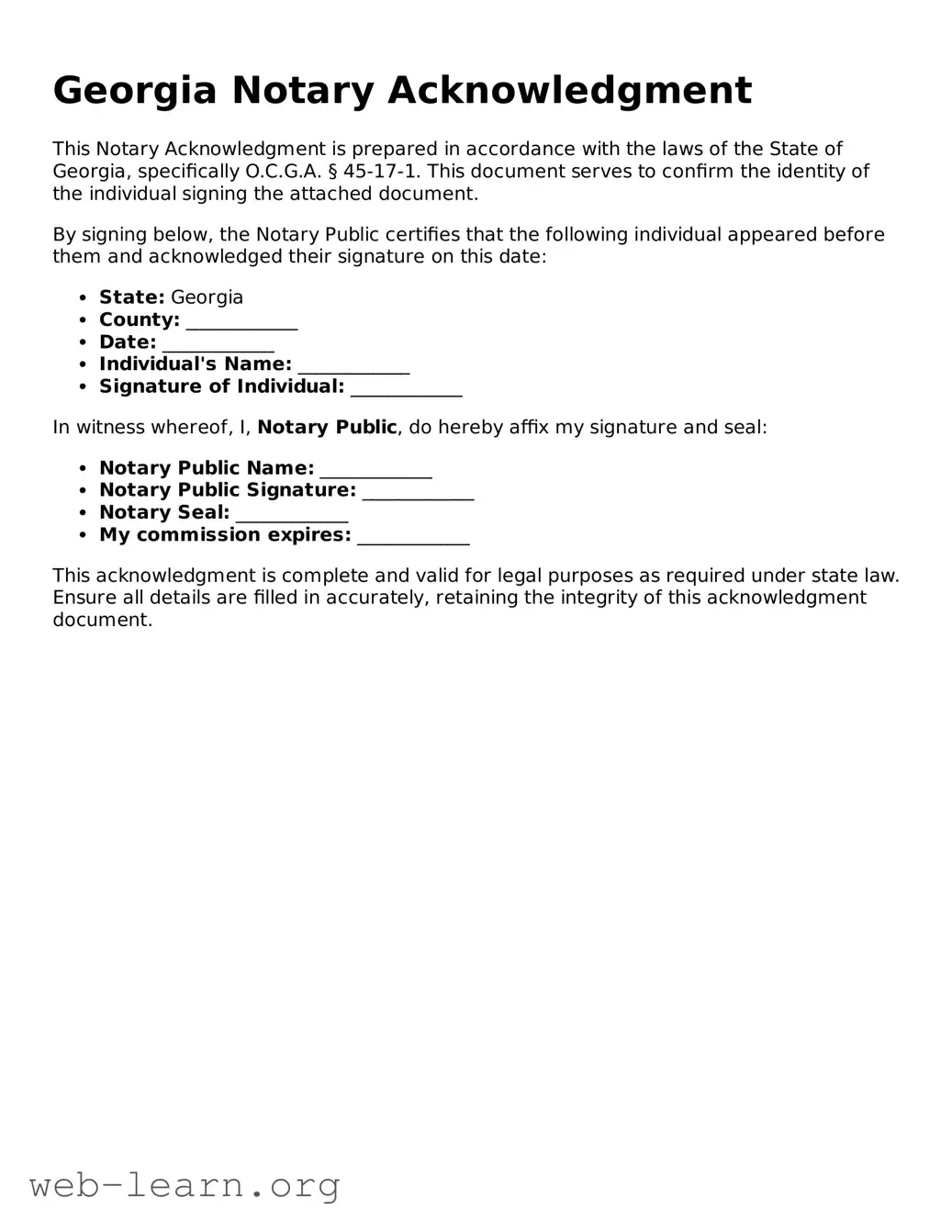Attorney-Approved Notary Acknowledgement Document for the State of Georgia
The Georgia Notary Acknowledgement form serves as an official document used to verify the identity of individuals signing various legal documents. This form ensures that the notary public has confirmed the signer’s identity and their willingness to engage in the transaction at hand. Understanding the components and requirements of this form is essential for ensuring proper notarization in legal proceedings.
